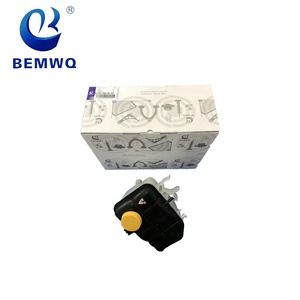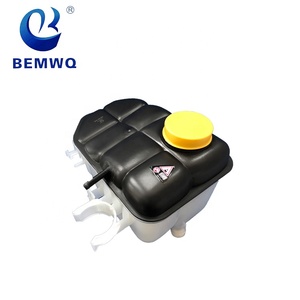
All categories
Featured selections
Trade Assurance
Buyer Central
Help Center
Get the app
Become a supplier

(2419 products available)












































Vehicle cooling systems require mercedes c class engine coolant to operate properly because these components directly influence engine longevity and performance. Engine temperature management devices serve as the main function of these devices to prevent overheating and enable efficient operation. The category of cooling systems contains specialized components under mercedes c class engine coolant, which work together for optimal thermal management. They work across multiple vehicle types, from passenger cars to heavy-duty trucks, as fundamental components for vehicle operation. The design evolution of mercedes c class engine coolant technology has produced improved performance and reliability standards for contemporary vehicles through ongoing advancement.
The mercedes c class engine coolant category consists of multiple distinct types that fulfill different vehicle requirements. Electric cooling fans, engine oil coolers, and intercoolers represent some of the most prevalent types. These devices use electric power to increase radiator airflow in parked or low-speed vehicles. Engine oil coolers remove surplus engine oil heat to keep viscosity at proper levels and shield critical engine parts. Intercoolers located in turbocharged and supercharged engines cool the compressed air from turbochargers before engine entry, boosting power output and efficiency. The different types of mercedes c class engine coolant exist to resolve unique cooling problems that help engines run safely within their normal operating temperatures.
The main objective of mercedes c class engine coolant systems is to regulate temperature and protect the engine from overheating, which could result in damage. These systems operate with thermostatic controls for accurate temperature management and pressure valves that maintain system safety. These mercedes c class engine coolant components also use advanced materials that boost thermal conductivity and resistance to corrosion to improve their operational lifespan. The typical design features include compact dimensions and a lightweight construction that allows for better installation compatibility with existing vehicle systems. mercedes c class engine coolant effectively manage engine temperature to improve fuel efficiency while decreasing emissions and boosting engine performance.
The construction of mercedes c class engine coolant relies on multiple high-performance materials that provide both durability and effective thermal management. The choice of materials includes aluminum with copper and composite polymers for their particular qualities. Aluminum is chosen for radiator and heat exchanger uses because of its high thermal conductivity and lightweight. Copper's great thermal conductivity qualifies it for rigorous heat transfer uses. Composite polymers offer enhanced resistance to corrosion and chemical degradation, hence qualifying them for modern mercedes c class engine coolant uses to increase performance and lifetime. These systems receive operational efficiency and reliability from their material selection, ensuring they function according to automotive application requirements.
The optimization of mercedes c class engine coolant requires knowledge about their operational parameters and maintenance procedures. The performance of these systems depends on scheduled maintenance inspections to avoid potential system failures. Regular checks for physical damage, corrosion, and leaks require immediate replacement of faulty components. Maintaining the correct coolant mixture within the cooling system is essential for proper thermal equilibrium. The performance benefits of upgraded mercedes c class engine coolant become more significant in high-performance vehicles along with modified models. The guidelines enable users to operate their cooling systems efficiently, leading to reliable engine protection and better vehicle performance.
When selecting the correct mercedes c class engine coolant for a vehicle, it is important to consider various factors that can influence the efficiency of the engine and compatibility with other components. A major factor to consider is the specific cooling needs of the engine. Different cooling systems are required since several engines produce varying degrees of heat. To obtain the correct one, it is therefore essential to take into account the power output of the engine, torque, and the intended use of the engine. For appropriate fit and performance, it is also crucial to verify mercedes c class engine coolant compatibility with the other components of the cooling system. Other factors like size, mounting arrangements, and types of connections should also be checked to prevent any possible problems with installation.
Another vital factor to look at is the efficiency and design of mercedes c class engine coolant. Due to the evolution of technology, there have been improvements in the efficient design of cooling systems. Some of the characteristics of these systems include control speed, efficient motors, and unique cooling methods, which can help improve the efficiency of the systems. The quality of the materials chosen will also affect the strength of the components, so it is also crucial to think about the strength and the duration the mercedes c class engine coolant can operate without breaking down. Choosing the correct cooling system for the application depends on giving these design and efficiency aspects some thought.
Signs that a mercedes c class engine coolant may need replacement include abnormal sounds, overheating often, and leakage. An engine cooling system that is not efficient enough or engine temperatures that keep fluctuating may be a sign of a bad system. It is, therefore, advisable to check on the engine occasionally to detect any possible problems.
To check on compatibility, it is crucial to cross-check the specifications of the mercedes c class engine coolant with those of a car. Parameters such as the engine capacity, type, and current cooling system layout should be considered. Check the vehicle's manual or seek advice from a mechanic to confirm the compatibility.
Yes, proper maintenance goes a long way in increasing the lifespan of mercedes c class engine coolant. This comprises component cleaning, leakage inspection, and coolant level checks. Also, it is crucial to change the worn-out parts and stick to the manufacturer's maintenance schedule.
Using a more advanced mercedes c class engine coolant can enhance the performance of the engine through better cooling, less engine strain, and even more power. These systems are usually equipped with the latest technologies that enhance thermal management and thus enhance the vehicle's performance.
Environmental aspects encompass the materials used in making mercedes c class engine coolant and their disposal. Selecting systems made from recycled or environmentally friendly materials can help decrease ecological impact. Furthermore, designs that are energy-consciously reduce emissions and enhance sustainability.